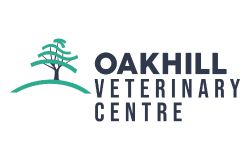Heat Stress in Cattle
Cattle are particularly susceptible to heat stress as they carry a fermentation tank (their rumen!) around with them which is constantly producing heat (the equivalent to a 1.4 kW heater in ambient temperatures). Cows may be subjected to heat stress under housed conditions or at grass.
For lactating cows, the greater the milk yield, the more heat is produced. For example, irrespective of the environmental temperature, a cow yielding 31 litres a day produces 48% more body heat than a dry cow!
There is evidence that heat stress is most marked when it comes in short bursts (as we (un)commonly see in Lancashire!) with no time for the cow to adapt to the rising temperatures.
Factors affecting the likelihood of heat stress include:
- Air temperature
- Solar radiation
- Air velocity
- Relative humidity
Cattle are likely to experience heat stress once the temperature reaches 24°C, particularly if the humidity is >70%. Calves are susceptible to heat stress from 25°C, as they have a larger surface area to body weight ratio.
The effects heat stress in dairy cattle include:
- 10-30% reduction in dry matter intake. Cows reduce their feed intake as a means to limiting their own heat production by the rumen. Cows will be more selective in what they eat and will avoid roughages if they are able to sort their diet. Less roughage = reduced rumination, and a reduction in heat production.
- Negative energy balance. A reduction in DMI will have a negative effect on the cows’ metabolic status.
- 8-37% reduction in milk yield. Butterfats will reduce if fibre intake is decreased.
- Negative impact on fertility. A reduction in heat expression and increased embryo mortality.
- Increased lameness. Heat-stressed cows prefer to stand in an attempt to keep cool. They may congregate in cooler areas of the shed. Increased standing puts greater pressures on feet.
- Increase in somatic cell count and clinical mastitis. This is due to a combination of compromised immune function, increased standing times, reduced fibre intake leading to thinner slurry, and a reduction in cubicle hygiene (sweaty skin and warm humid bedding materials are the perfect recipe for mastitis!)
Cows suffering from heat stress exhibit increased breathing rates. In extreme cases cows may be seen panting and open-mouth breathing in an attempt to cool down. You may notice cows clustering in cooler areas of the shed or in shaded areas. Respiration rates and body temperature are both good ways to assess whether cows are affected by heat stress. A normal respiratory rate is 26-50 breaths per minute. Rectal temperature should be <39.3. It is not advisable to wait for a reduction in milk yield as there is a lag time of 2-4 days.
Managing heat stress:
- Ensure sufficient water sources – cows may drink in excess of 200 litres in hot weather. Provide at least 10cm linear trough space per cow, from multiple troughs to minimise competition.
- Reduce solar radiation – ensure cows at grass have sufficient shade and assess the effect of solar radiation from sky lights. Try painting south-facing sky lights to reduce sunlight entering buildings.
- Modify existing buildings to maximise ventilation. This could include opening up the ridge and creating more air inlets along the side of buildings. For adult cattle the outlet in the ridge needs 0.1m2 per animal. Inlets in each sidewall need to be 1.5-2x the outlet area.
- If the ventilation is still inadequate, consider installing fans.
- Reduce the stocking density in buildings.
- It may be appropriate to house grazed cattle.
- Only handle cattle at cooler times of the day and minimise time spent in holding pens.
- Feed at cooler times of the day (8pm-8am).
- Ensure good fly control as flies are more active in hot weather and contribute cows’ frustration.
- Move calf hutches to shaded areas where there is good air flow.
Don’t forget collecting yards and the milking parlour. If it’s uncomfortable for you it certainly will be for your cows!
